13 Things People With Nice-Smelling Homes Never Do According To Pros, Plus 9 Extra Ones People Usually Forget
This post contains affiliate links, which means that I make a small commission off items you purchase at no additional cost to you. Please read my policy page for more information.
Forget the usual advice about candles and sprays, people with truly amazing-smelling homes have secrets you’ve probably never heard.
It’s not just about masking odors, it’s about creating a vibe that feels fresh, inviting, and downright irresistible. From expert tricks to little things most people totally overlook, these habits make all the difference.
Ready to unlock the scent secrets that’ll have your home smelling like a dream? Time to jump right in! Trust me, your nose will thank you!
1. Neglect Garbage Disposal Cleaning
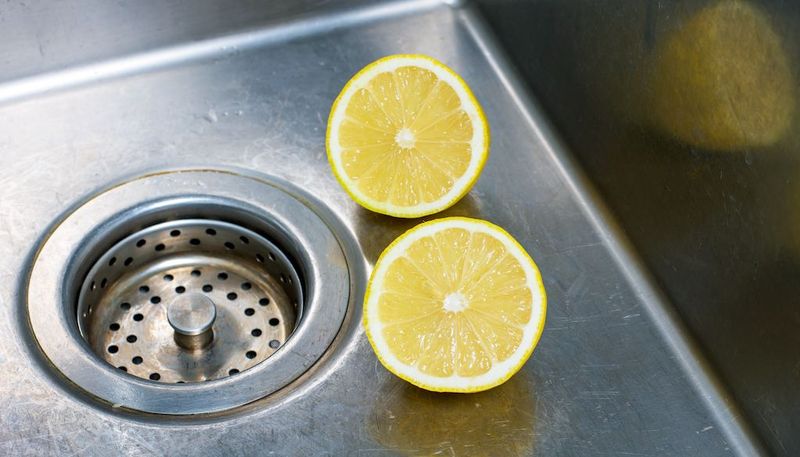
Food particles lurking in your disposal create that mystery funk wafting through your kitchen. I recommend grinding lemon peels weekly to freshen things up naturally.
Those citrus oils work magic on greasy buildup while eliminating odors. Though commercial cleaners exist, why spend extra when nature provides the perfect solution?
For stubborn smells, try ice cubes made with vinegar and lemon juice. The grinding action scours away residue while delivering a one-two punch of cleaning power.
2. Skip Regular Vacuum Filter Changes
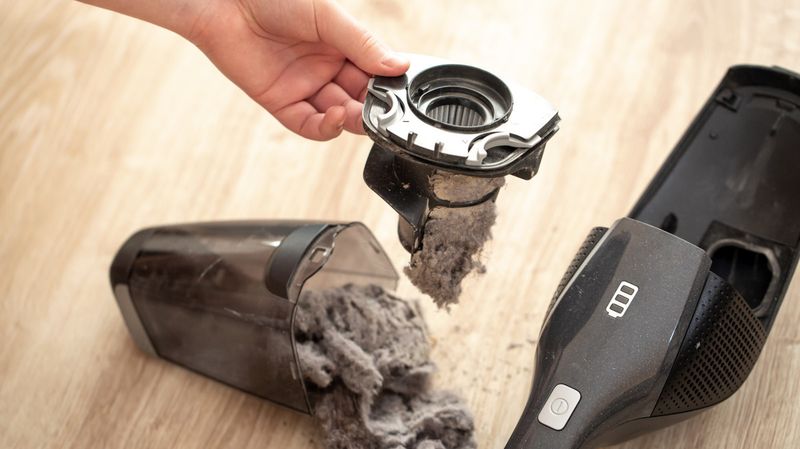
Your vacuum might be secretly sabotaging your home’s scent profile. When filters become clogged, your trusty cleaning companion starts redistributing dust and dander instead of removing it.
Most homeowners forget this simple maintenance task until that telltale burning dust smell appears. I’ve seen clients vacuum religiously yet wonder why their homes still smell musty.
Check the manufacturer guidelines first. Typically, changing filters every quarter keeps your machine running efficiently and prevents it from becoming an odor distributor.
3. Ignore Hidden Mold Sources
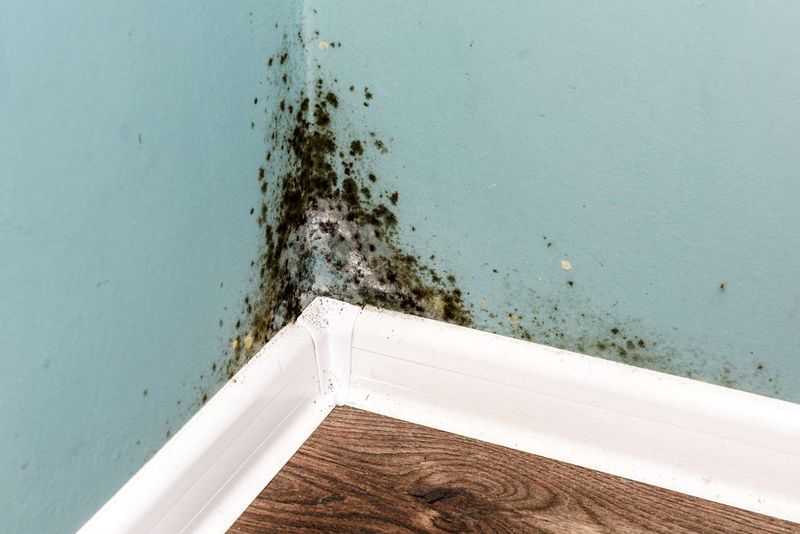
Mold loves playing hide-and-seek in your home. Check under sinks, behind toilets, and around window frames where condensation creates perfect breeding grounds for these smelly invaders.
I once discovered a client’s mysterious odor stemmed from mold growing beneath seemingly pristine bathroom caulking. The sneaky culprit had been releasing spores for months!
Mix a solution of one part hydrogen peroxide to two parts water for natural mold treatment. Apply to suspect areas and watch for bubbling, that reaction reveals hidden mold colonies.
4. Let Wet Laundry Sit
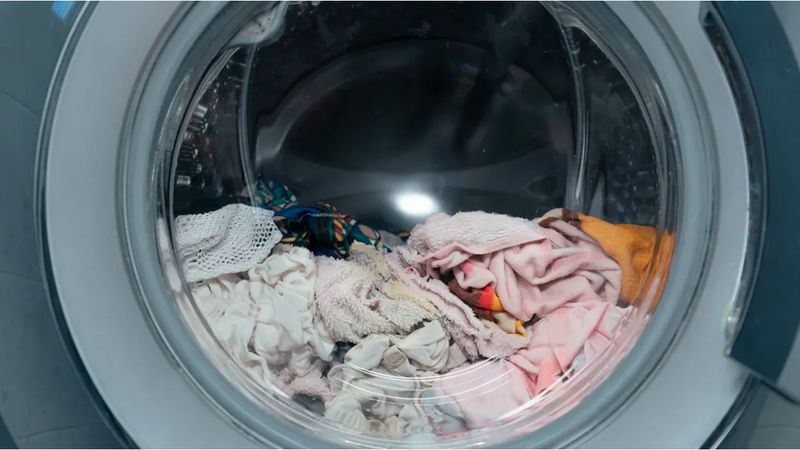
Forgotten wet clothes in the washing machine? You’ve just created a smell factory! That musty odor develops within hours and can permeate your entire laundry area.
Smart homeowners set timers when doing laundry. If you forget occasionally (we all do), run the load again with a cup of white vinegar to neutralize odors before drying.
Consider installing a small wall-mounted fan in your laundry room too. Improved air circulation prevents that damp, heavy atmosphere where mildew thrives and odors concentrate.
5. Overuse Air Fresheners
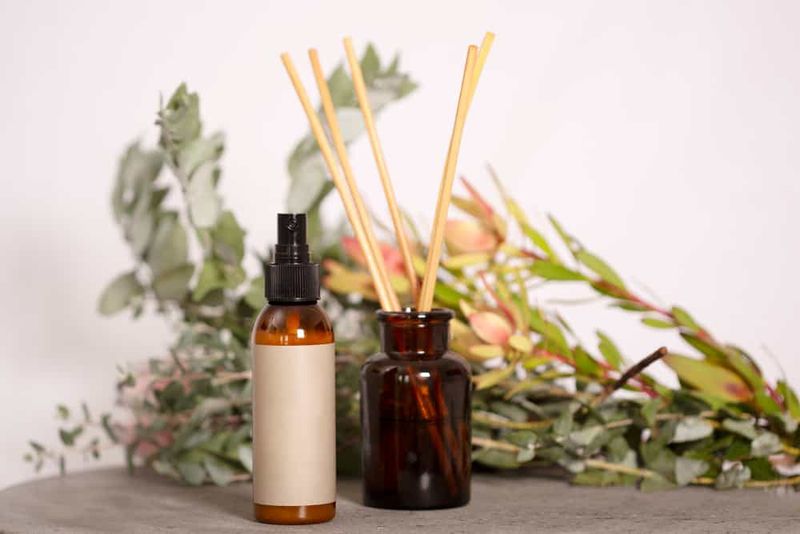
Ironically, homes that smell amazing rarely rely on commercial air fresheners. These products often mask odors rather than eliminating them, creating an artificial chemical layer that screams “I’m hiding something!”
I’ve walked into homes with such competing scents that my nose practically surrendered. Good-smelling homes address the source of odors instead of covering them up.
If you love fragrance, opt for essential oil diffusers, simmer pots with cinnamon sticks and orange peels, or houseplants that naturally purify air like peace lilies or snake plants.
6. Forget About Pet Beds

Fluffy’s favorite napping spot might be sabotaging your home’s fragrance. Pet beds collect dander, hair, and outdoor debris, becoming odor hotspots when neglected.
Choose pet beds with removable, washable covers and launder them weekly. For deeper cleaning, sprinkle baking soda on the bed’s interior, let sit overnight, then vacuum thoroughly.
If washing isn’t possible, try this designer trick: place the bed in direct sunlight for several hours. UV rays naturally kill odor-causing bacteria while the heat evaporates trapped moisture.
7. Cook Without Proper Ventilation

Last night’s fish dinner shouldn’t greet visitors the following afternoon! Cooking without adequate ventilation allows food odors to penetrate soft surfaces throughout your home.
Always run your exhaust fan during cooking and for 15 minutes afterward. If your kitchen lacks proper ventilation, open windows on opposite sides of your home to create cross-breeze that carries odors outside.
For particularly pungent meals, simmer vinegar water afterward or leave out a bowl of coffee grounds overnight. Both absorb lingering food smells without introducing competing fragrances.
8. Neglect Upholstery Cleaning
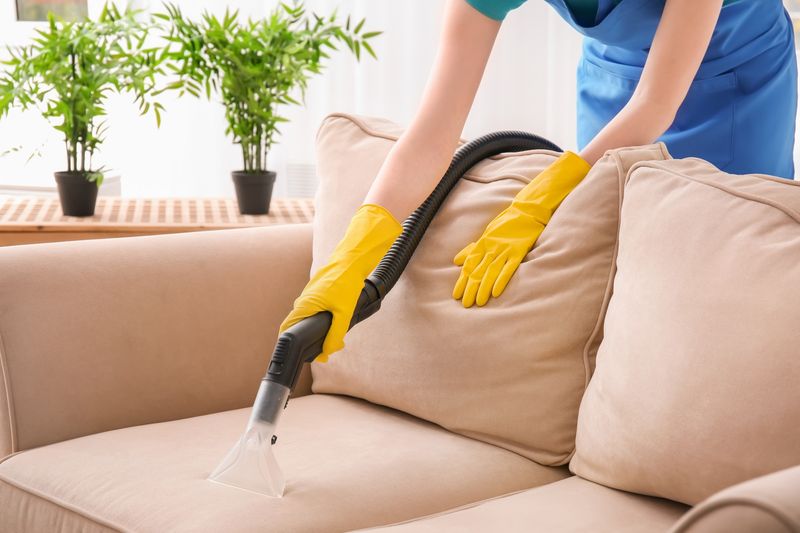
Your couch is secretly hoarding odors. Fabric furniture absorbs everything from food particles to body oils to pet dander, creating a potpourri of scents you’ve become nose-blind to.
Pro Tip: A yearly professional upholstery cleaning makes a big difference, but quarterly upkeep is key to keeping odors in check. Mix equal parts baking soda and cornstarch, sprinkle generously over furniture, let it sit for 30 minutes, then vacuum thoroughly for a fresh, clean finish.
For leather furniture, wipe down with a solution of equal parts white vinegar and water quarterly. The vinegar smell dissipates quickly, taking other odors with it.
9. Allow Dirty Dishes To Accumulate
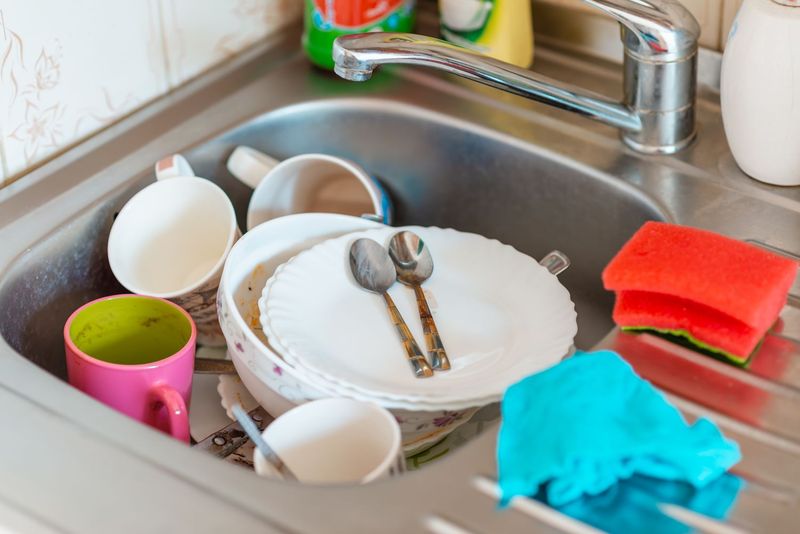
Nothing screams “stink alert” faster than a sink piled high with crusty dishes. Those leftover food bits start their own fermentation party, breaking down and letting off smells that sneak through your whole kitchen.
I always say, don’t let your sink become a “dishaster” zone! Either wash up right after meals or at least rinse and stack neatly, because those clingy food particles turn into odor factories overnight.
Busy schedule? Keep a spray bottle with equal parts water and white vinegar handy. A quick spritz keeps the funk from “plate-ing” while your dishes wait for their turn in the dishwasher spotlight!
10. Skip Regular Drain Maintenance
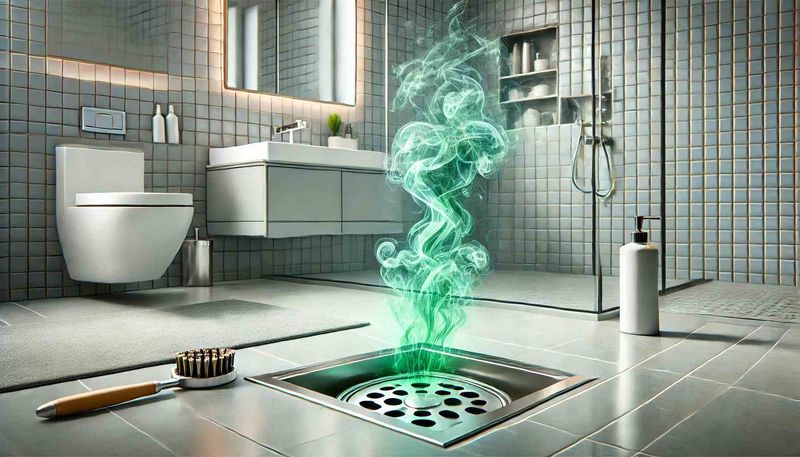
Your drains harbor a secret ecosystem of bacteria feasting on hair, soap scum, and organic matter. That slow-draining bathroom sink isn’t just annoying, it’s brewing a special blend of funky odors.
Pour boiling water down drains weekly to flush away buildup. Monthly, follow with half cup baking soda, then half cup vinegar, wait 15 minutes, and rinse with more boiling water.
Avoid chemical drain cleaners which damage pipes and create their own harsh smell. Instead, use a drain snake or zip tool to physically remove hair clogs that trap odor-causing debris.
11. Overlook Trash Can Cleanliness
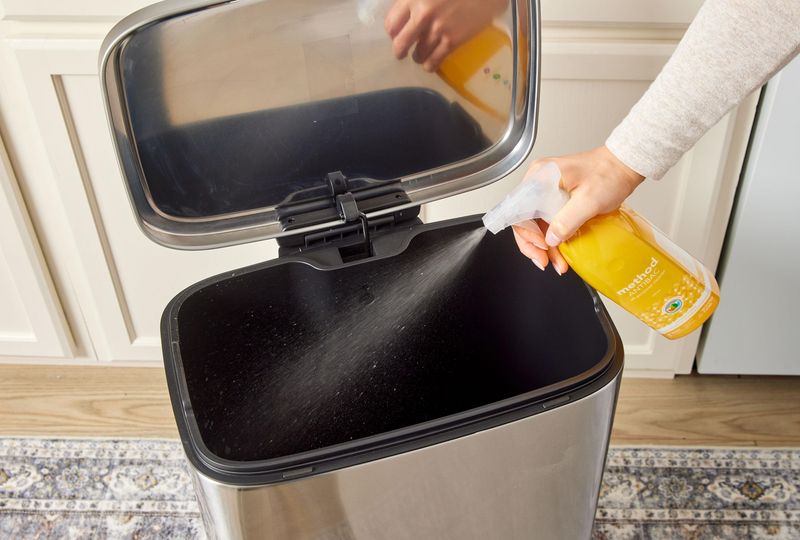
Even empty trash cans harbor funky smells! Those mysterious drips and spills create a layer of gunk at the bottom that continues releasing odors long after the bag is gone.
Wash indoor trash cans monthly with soap and water, then spray with diluted white vinegar. For kitchen bins, sprinkle baking soda in the bottom before inserting a new bag to absorb odors.
Consider switching to smaller trash cans that force more frequent emptying. Garbage sitting for days develops stronger odors that can permeate nearby textiles and walls.
12. Forget About HVAC Maintenance
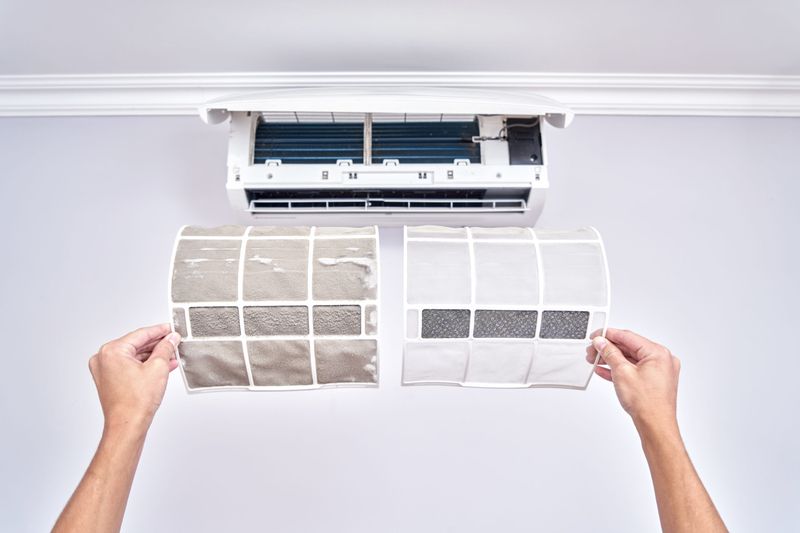
Your heating and cooling system circulates air throughout your entire home. When filters get clogged or ducts accumulate dust, every room gets a fresh dose of musty particles with each cycle.
Change HVAC filters monthly during heavy-use seasons. The few dollars spent on quality filters pays off in cleaner air and reduced odors.
Consider having your air ducts professionally cleaned every 3–5 years. This often-overlooked maintenance task can significantly improve indoor air quality, making a home feel noticeably fresher and more comfortable.
13. Ignore Bathroom Humidity
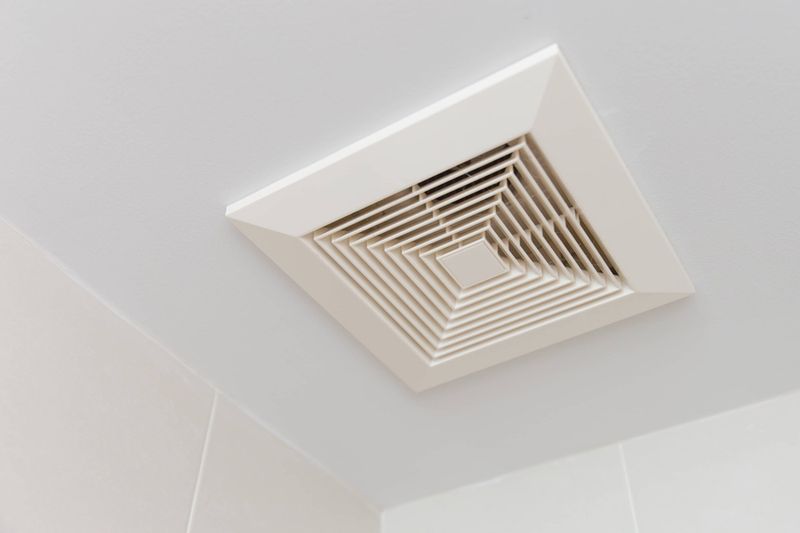
Love steamy showers as much as your bathroom does? Steamy showers feel amazing but create perfect conditions for mildew growth. That musty bathroom smell develops when moisture lingers too long on surfaces.
Always run the exhaust fan during showers and for 30 minutes afterward. If your bathroom lacks a fan, open windows or place a portable dehumidifier nearby.
Keep shower doors open after use so air circulates. This simple habit prevents that closed-shower-curtain funk from developing and extends the life of your bathroom fixtures too.
14. Neglect Refrigerator Cleaning
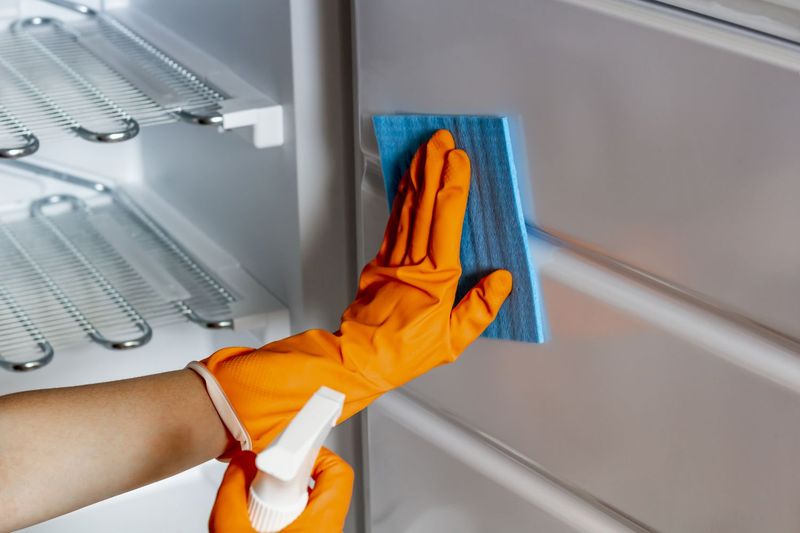
Your fridge contains dozens of food items in various stages of freshness. When spills happen or leftovers get forgotten, odors develop that waft out every time the door opens.
Wipe spills immediately and do a complete cleanout weekly. That mystery container from two weeks ago? When in doubt, throw it out!
Keep an open container of baking soda in the back of your fridge and replace it every three months. For deeper cleaning, remove drawers quarterly and wash with warm, soapy water to eliminate hidden food residue.
15. Forget About Shoe Storage
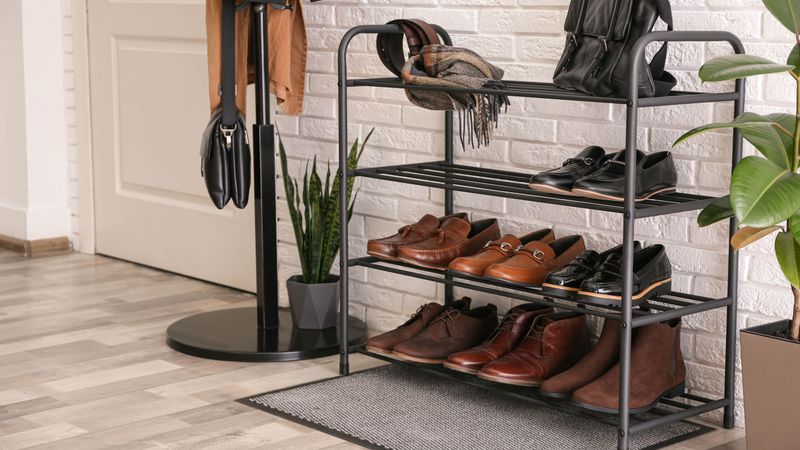
Ever walk through the front door and get hit with a mysterious funk? It’s probably your shoe collection. Footwear absorbs sweat and outdoor odors, then slowly releases them into your entryway.
Create a dedicated shoe storage area away from main living spaces. Open shelving allows shoes to air out rather than festering in closed containers.
Sprinkle baking soda inside shoes overnight once weekly, then vacuum out in the morning. For athletic shoes, consider cedar shoe trees which absorb moisture and impart a subtle, pleasant scent.
16. Use Harsh Cleaning Products
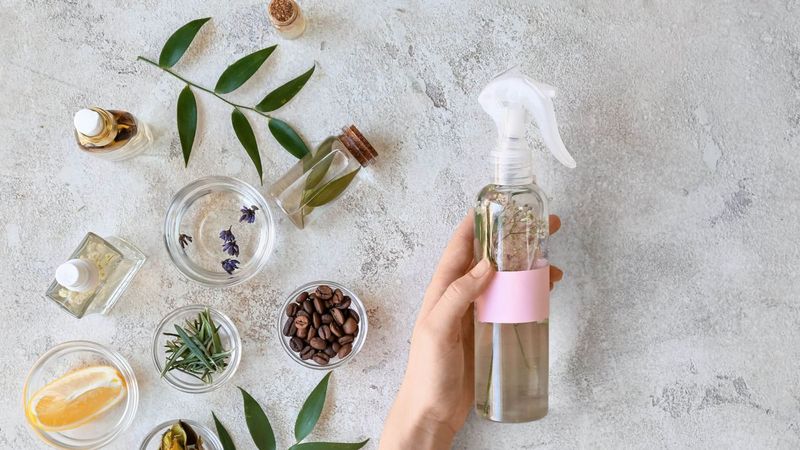
Industrial-strength cleaners may eliminate germs, but they often leave behind harsh chemical odors that disrupt your home’s natural vibe. That sharp bleach scent? It doesn’t mean “clean”, it just means bleach.
Switch to vinegar, baking soda, and castile soap for most cleaning tasks. These natural workhorses clean effectively without leaving competing scents behind.
If you must disinfect, use hydrogen peroxide or alcohol-based products that evaporate completely instead of lingering. Your home should smell like your favorite essential oils or nothing at all.
17. Overlook Carpet Deep Cleaning
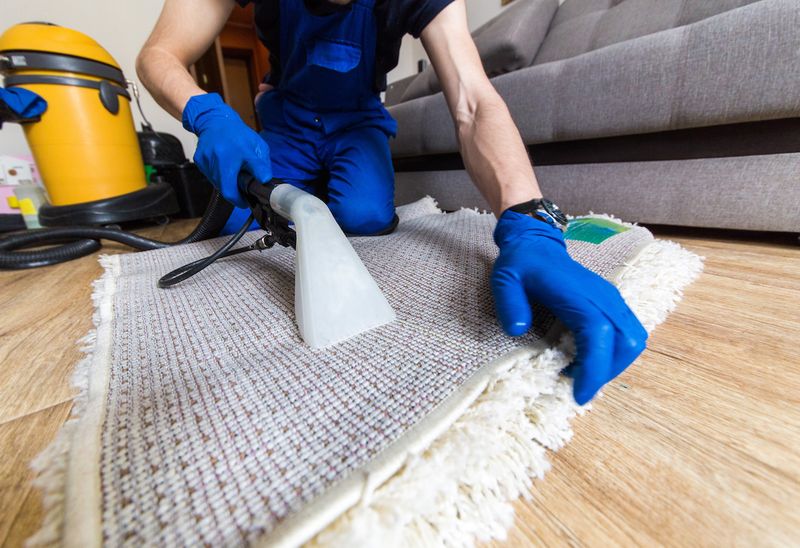
Your carpet works like a giant air filter, trapping dust, pet hair, and spilled drinks. Over time, these particles break down and release odors that no amount of air freshener can disguise.
Vacuum twice weekly, moving furniture occasionally to reach hidden areas. Sprinkle baking soda before vacuuming for added odor control.
Have carpets professionally cleaned annually, or rent a steam cleaner quarterly for DIY deep cleaning. The difference in your home’s air quality will be immediately noticeable, especially to visitors whose noses aren’t accustomed to your space.
18. Ignore Lingering Cooking Oils
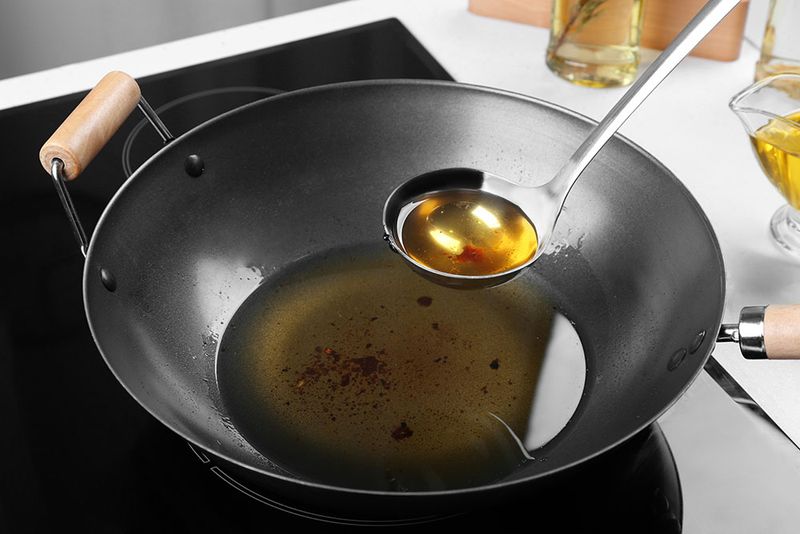
Those splatter marks on your stovetop and backsplash aren’t just unsightly, they’re slowly releasing odors into your kitchen air. Cooking oils oxidize over time, developing that distinctive rancid smell.
Wipe down cooking surfaces daily with a degreasing solution. A mixture of dish soap and warm water works perfectly for this task.
For stubborn grease buildup, make a paste of baking soda and water, apply to affected areas, and let sit for 15 minutes before wiping clean. Your kitchen will smell noticeably fresher when old oils aren’t lingering on surfaces.
19. Forget About Houseplant Maintenance

Those lovely plants purifying your air can become odor sources when neglected. Overwatering creates stagnant conditions where bacteria thrive, while dead leaves decompose and release unpleasant smells.
Check soil moisture before watering, most houseplants prefer drying out slightly between waterings. Remove dead leaves promptly and repot plants when they become root-bound.
Add a breath of fresh air with naturally fragrant plants such as jasmine, lavender, or scented geraniums. They not only purify the air but also infuse your space with gentle, mood-lifting aromas.
20. Use Smelly Dish Sponges
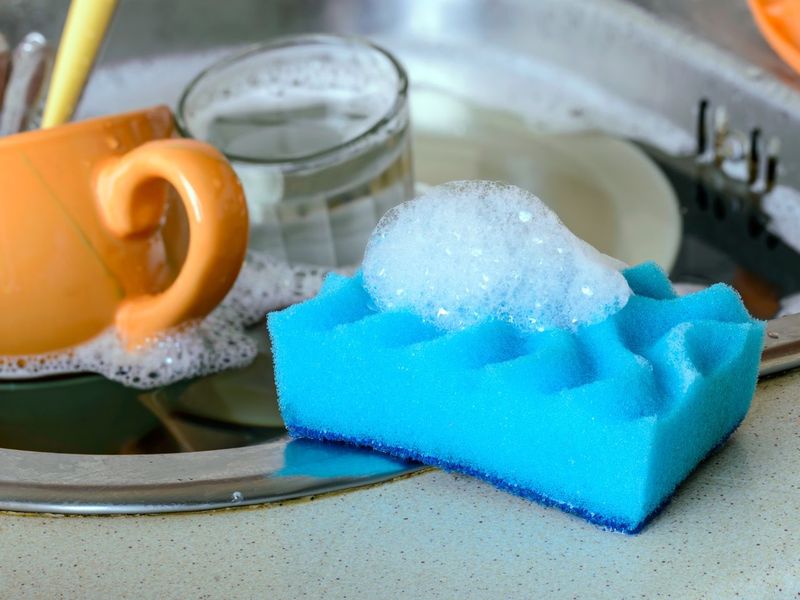
An innocent-looking kitchen sponge can harbor millions of bacteria thriving on food scraps. Each use spreads unpleasant odors to your dishes and countertops.
Replace sponges every two weeks or sanitize them between uses. Microwave damp sponges for 60 seconds or run through the dishwasher’s hottest cycle to kill odor-causing bacteria.
Consider switching to silicone scrubbers which dry quickly and resist bacterial growth. If you prefer traditional sponges, keep a small dish of diluted bleach solution nearby for quick dips after each use.
21. Neglect Washing Machine Cleaning
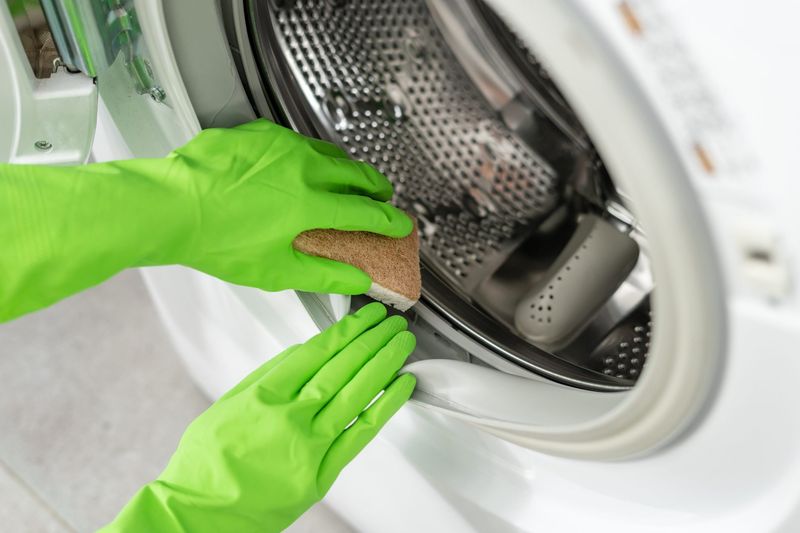
Your clothes washer needs washing too! Front-loaders especially develop that notorious mildew smell when moisture and detergent residue accumulate in door gaskets and dispensers.
Run an empty hot water cycle monthly with two cups of white vinegar to dissolve soap scum and kill odor-causing bacteria. Leave the door open between uses to allow complete drying.
Wipe down door gaskets weekly with a vinegar-water solution, paying special attention to folds where mold loves hiding. This five-minute maintenance prevents that musty smell from transferring to your freshly washed clothes.
22. Forget About Closet Ventilation
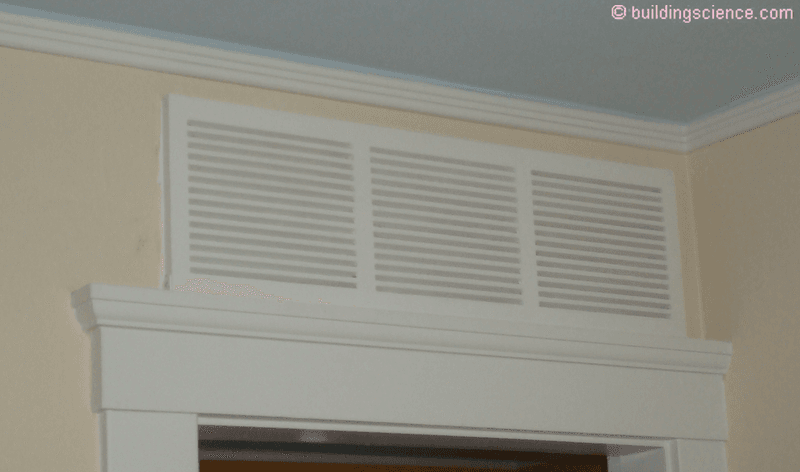
Closed closet doors trap moisture and prevent air circulation, creating that distinctive “closet smell” that transfers to your clothes. Seasonal items stored long-term are especially vulnerable.
Leave closet doors slightly ajar when possible and install louvered doors for built-ins to improve airflow. Avoid overcrowding hangers which prevents air from circulating between garments.
Place cedar blocks or lavender sachets on shelves rather than mothballs. Natural options repel insects while adding subtle, pleasant scents that won’t overwhelm your wardrobe.
